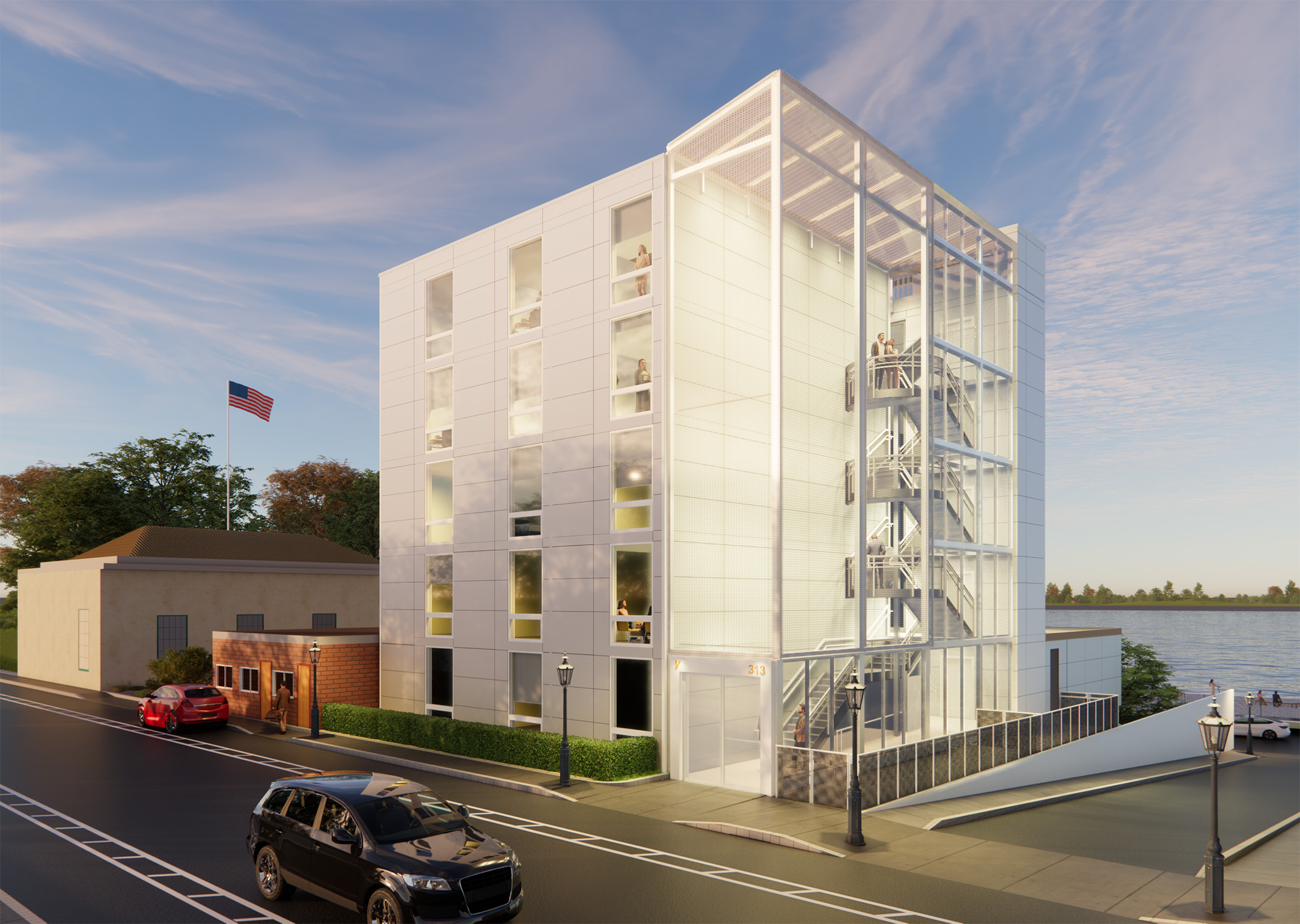Investment firm Mastry Ventures and LENx, the venture arm of homebuilder Lennar, have co-invested in Vessel Technologies’ next-generation housing product. Vessel, a housing product development company, aims to cultivate a pathway to creating attainable housing across the country.
The company’s housing system is focused on “reimagining the apartment building as a consumer product by creating exciting, sustainable, and user-centric housing at attainable prices,” according to Vessel. This is done by prefabricating wall and ceiling components in Vessel’s own manufacturing facility—cutting costs and time compared to traditional construction methods.
Vessel Technologies’ All-Electric Prefab Building System
The Vessel system is 100% electric; solar panels affixed to the rooftop deliver all of the power required for occupants. With the company’s aim for sustainability, Vessel uses no paint and instead utilizes a proprietary recyclable wall panel system. According to Vessel, its facade system is also twice as energy efficient as built-to-code alternatives.

“Vessel represents a whole new category of housing, innovative in every way, to fill a tremendous void: the dearth of truly excellent, deeply desirable and economically accessible rental homes,” said Sam Landman, Co-Founder and Managing Partner of Mastry Ventures.
The investment in Vessel Technologies by Masty and Lennar will allow the product company to accelerate its efforts of providing high-quality buildings, from rental housing to hospitals and universities. Vessel touts its patented system’s seamless design, with operable pieces that smoothly fit together.
Based in New York City, Vessel currently has 12 projects under development throughout the Northeast—all of which are targeted to be net zero. The company’s building materials are sustainable, fire-resistant, and aim to pair well with proprietary smart tech software.
The software—utilizing the company’s own operating system, vOS—acts as a virtual “super” that monitors the building’s hardware, energy demands, and water usage. Additionally, the system includes hundreds of sensors and electro-mechanical devices to manage a unit’s temperature, air quality, security, lighting, and entertainment systems, according to Vessel.








